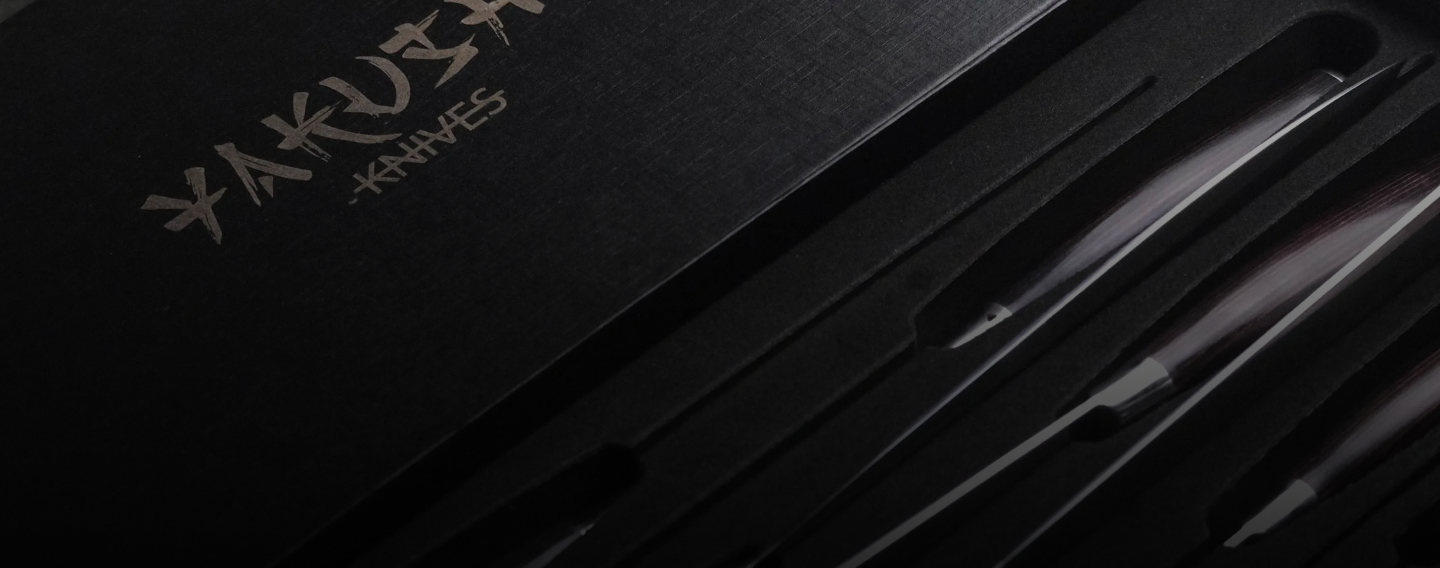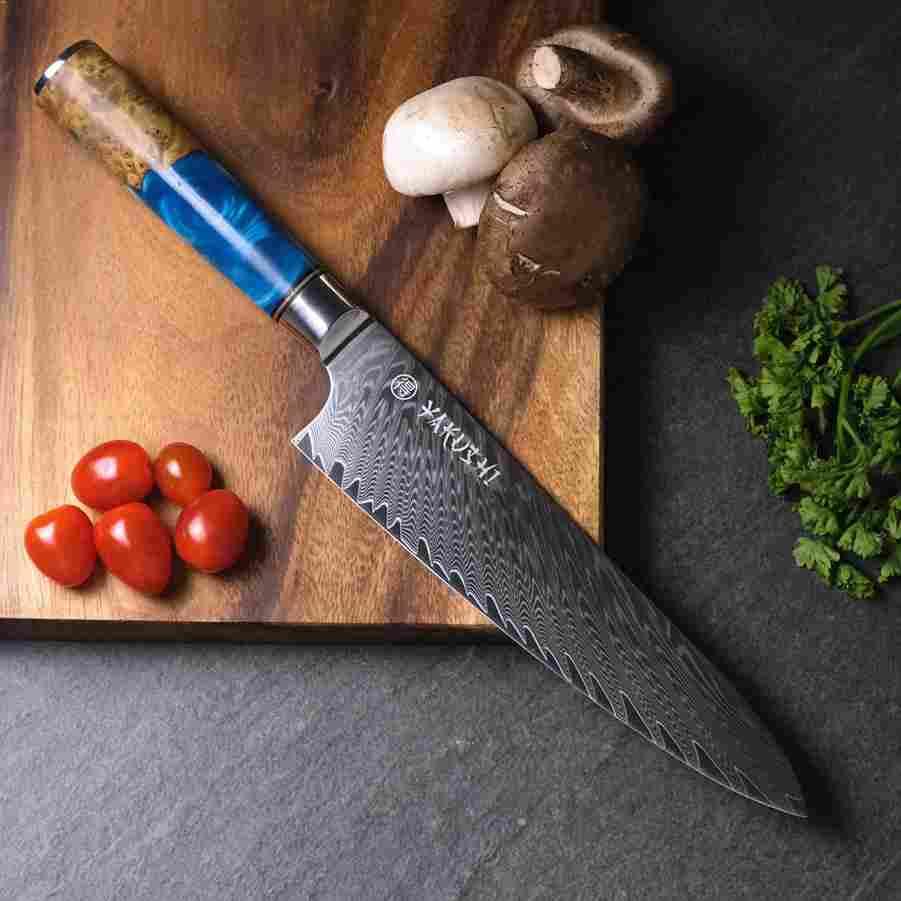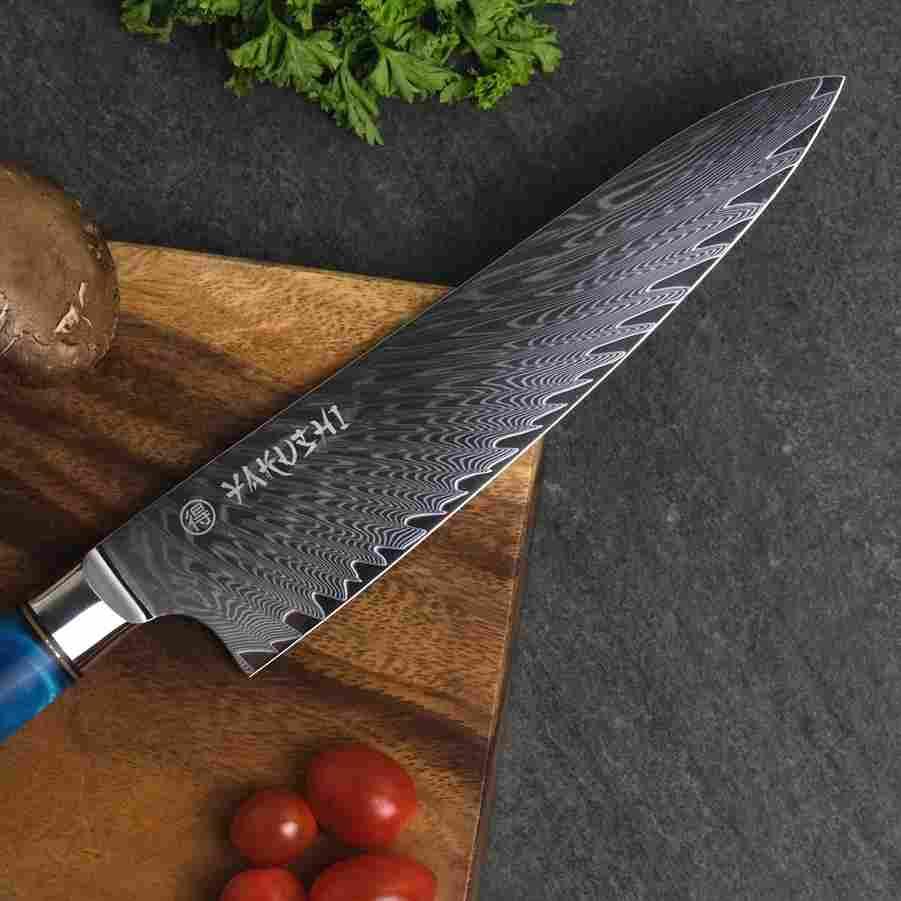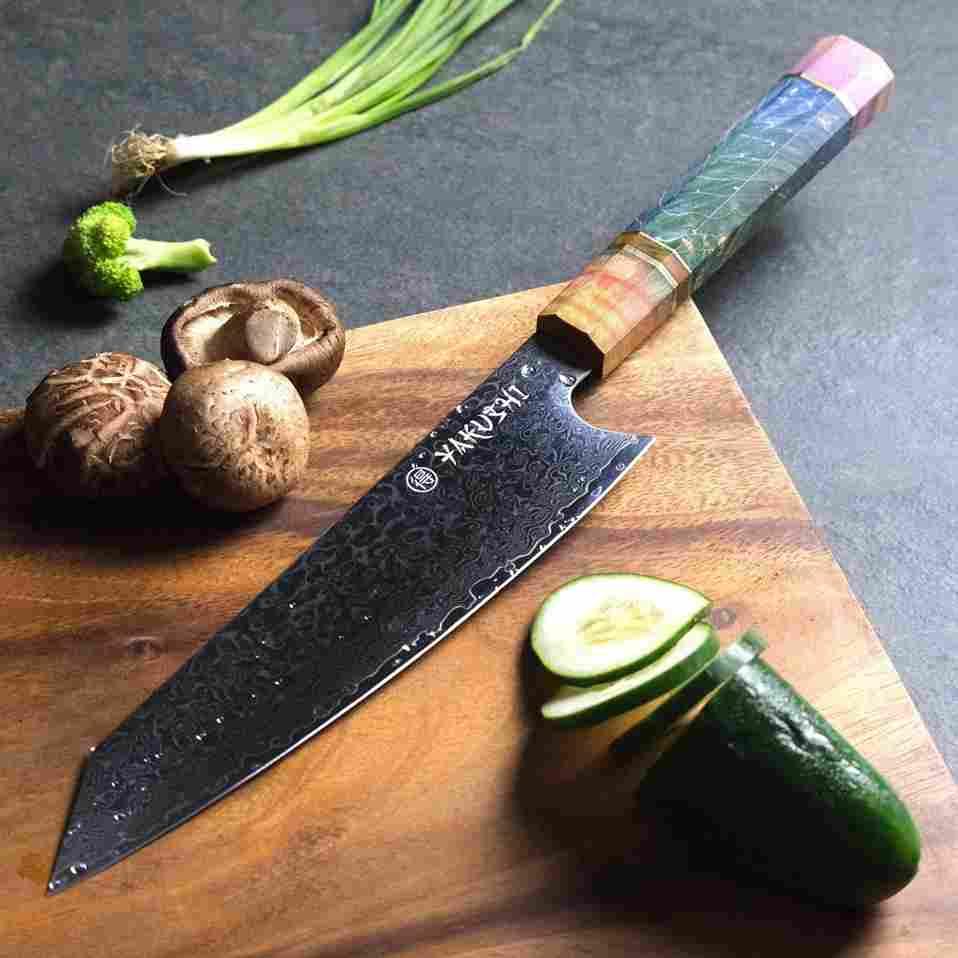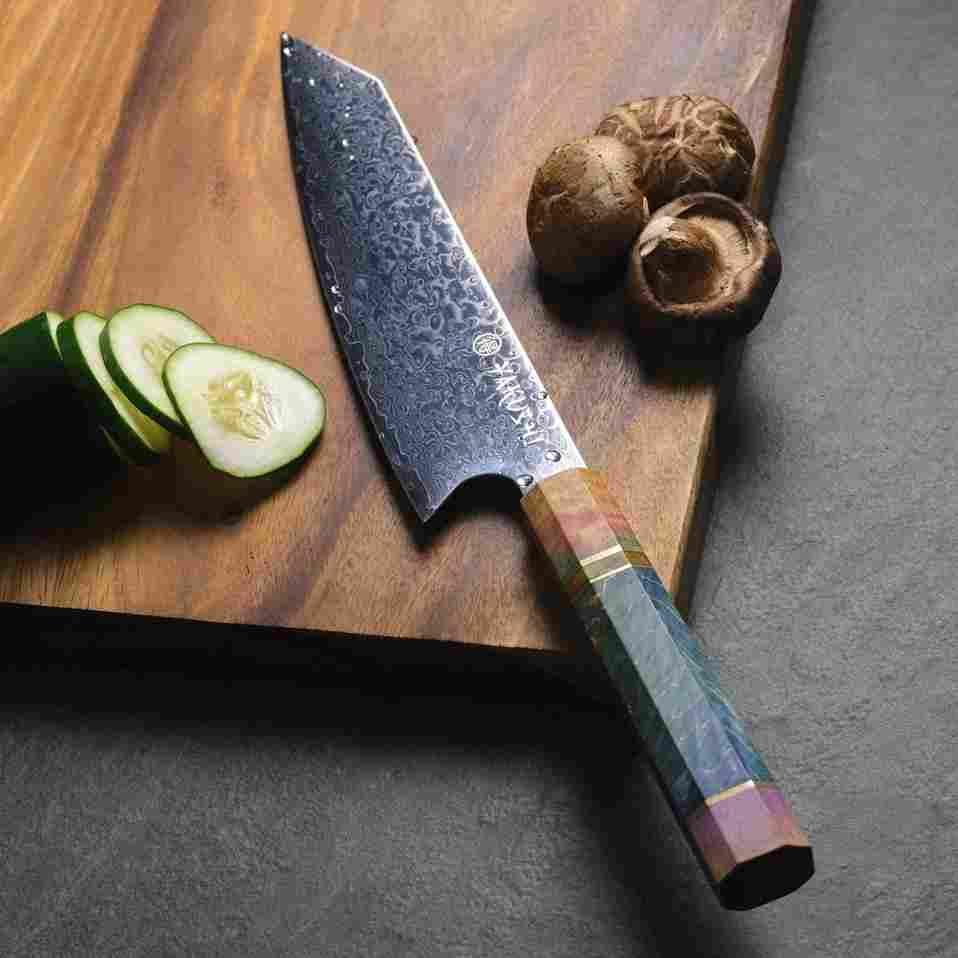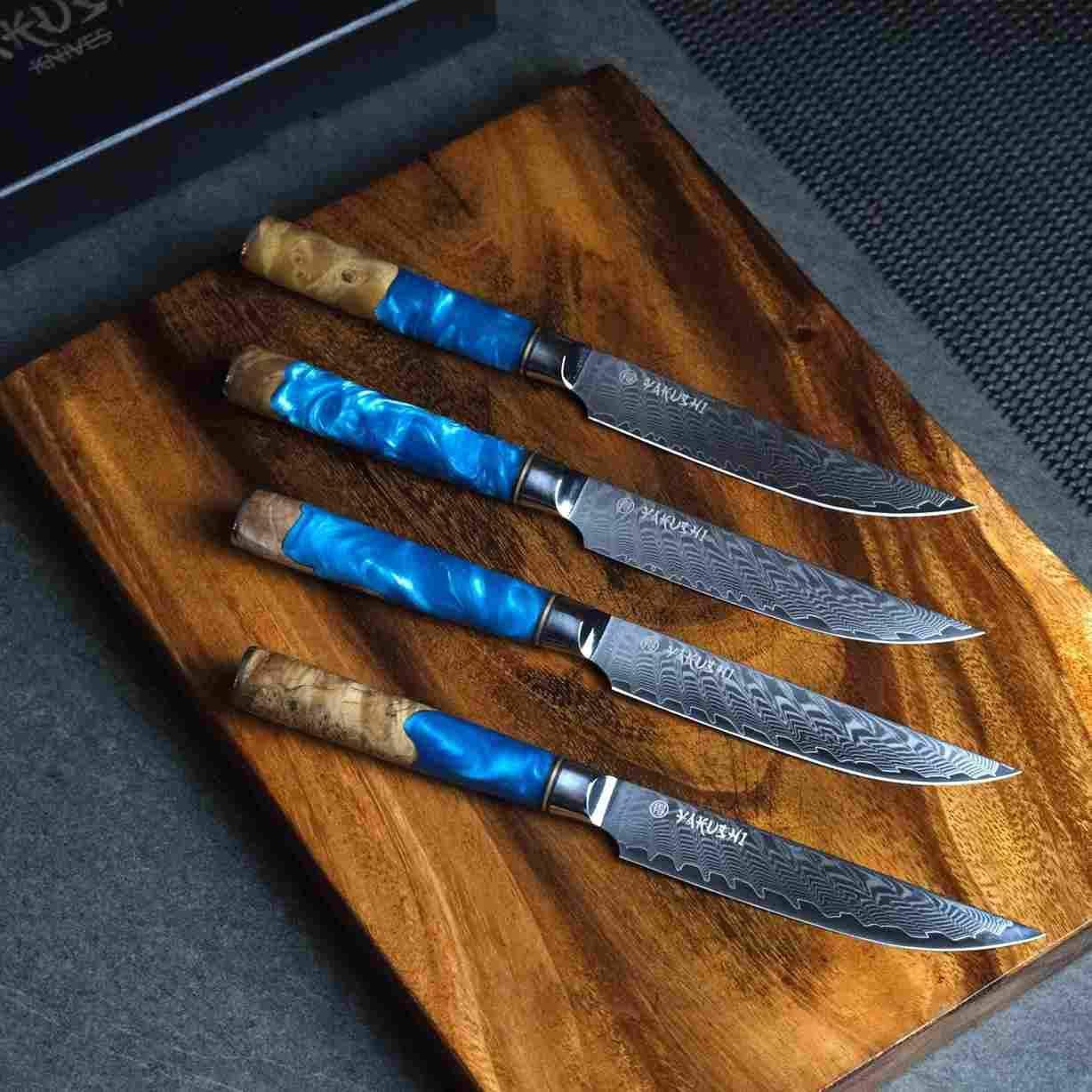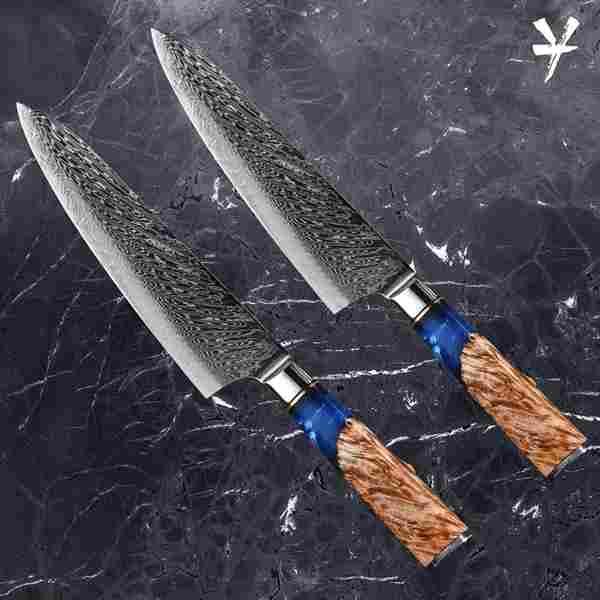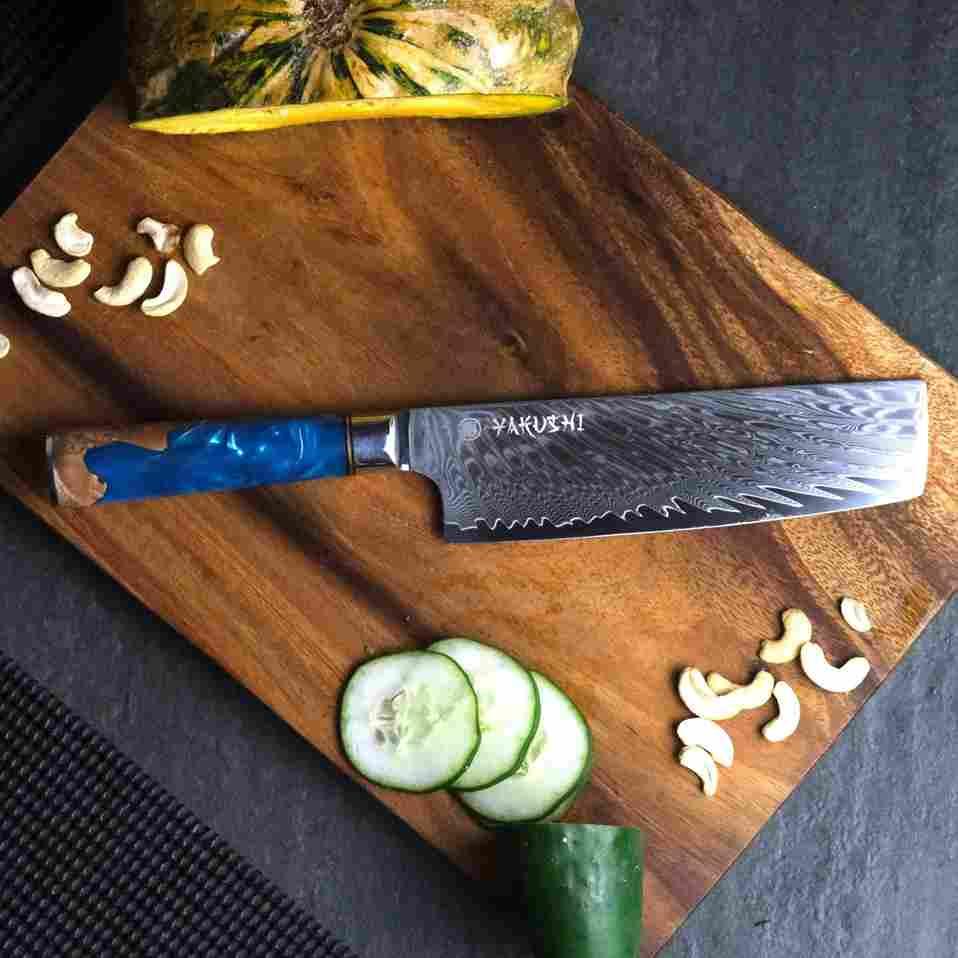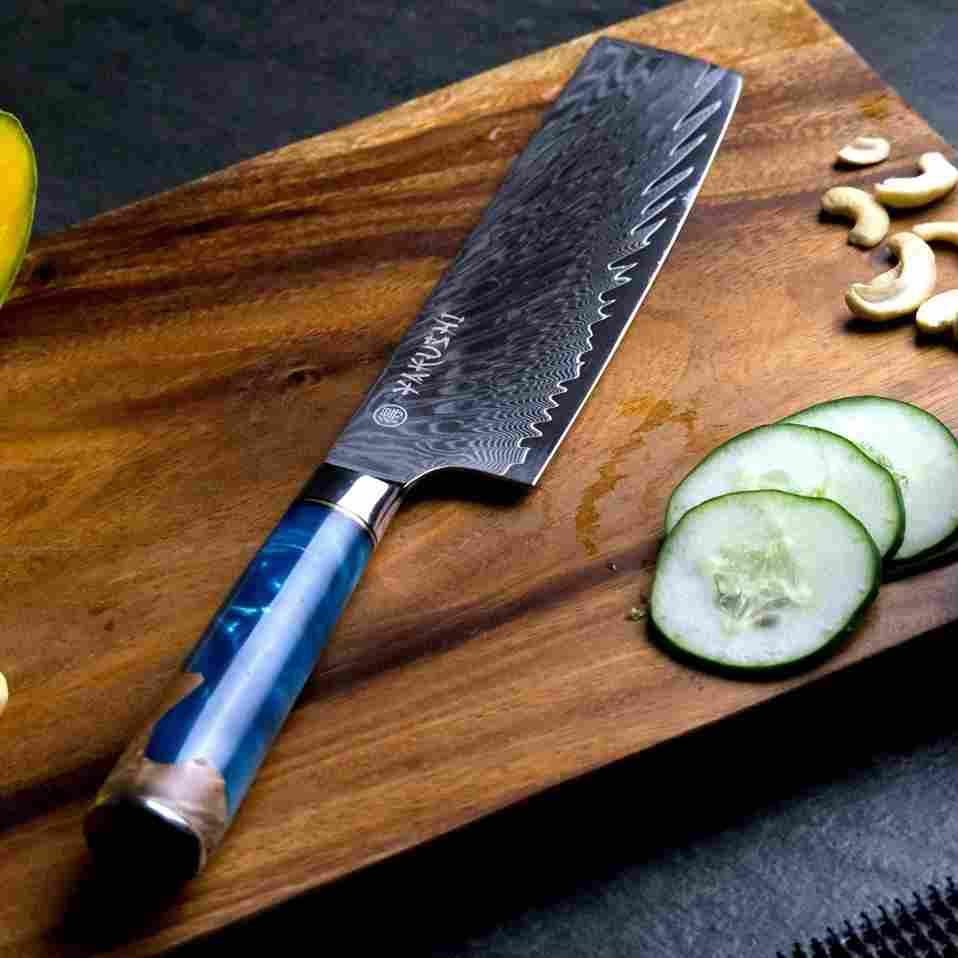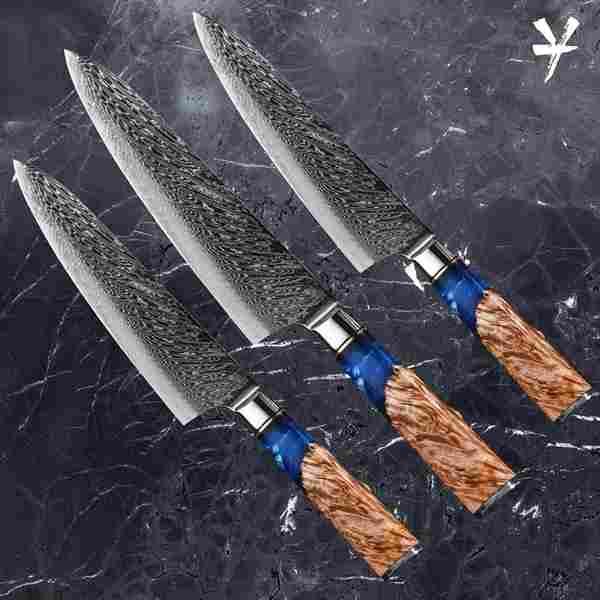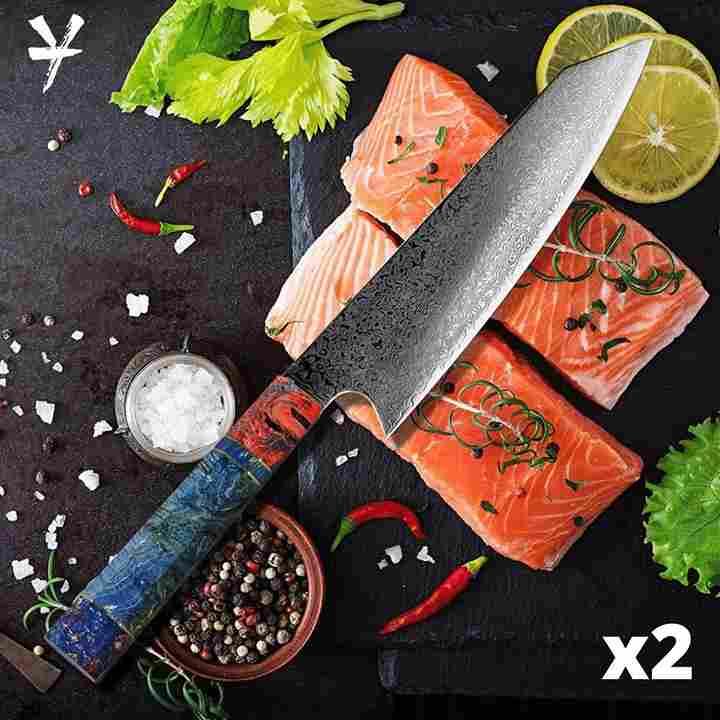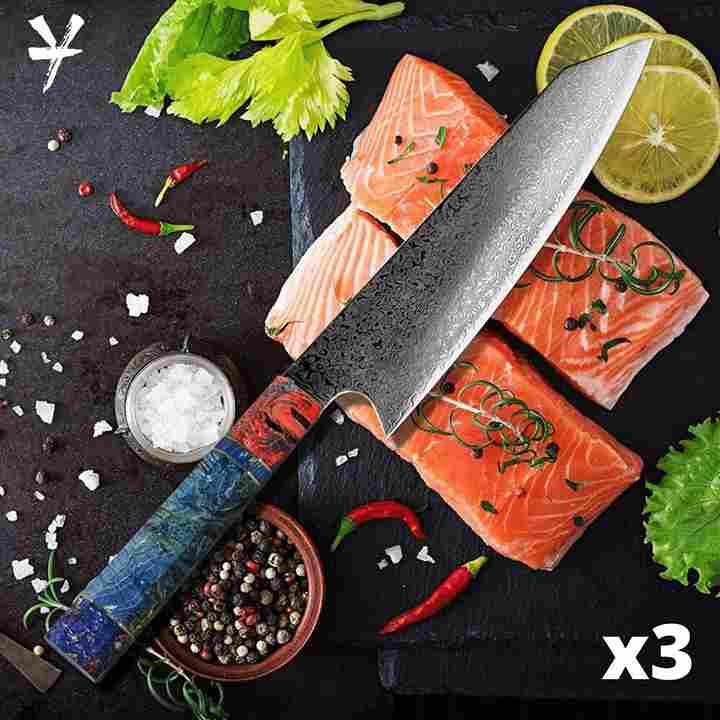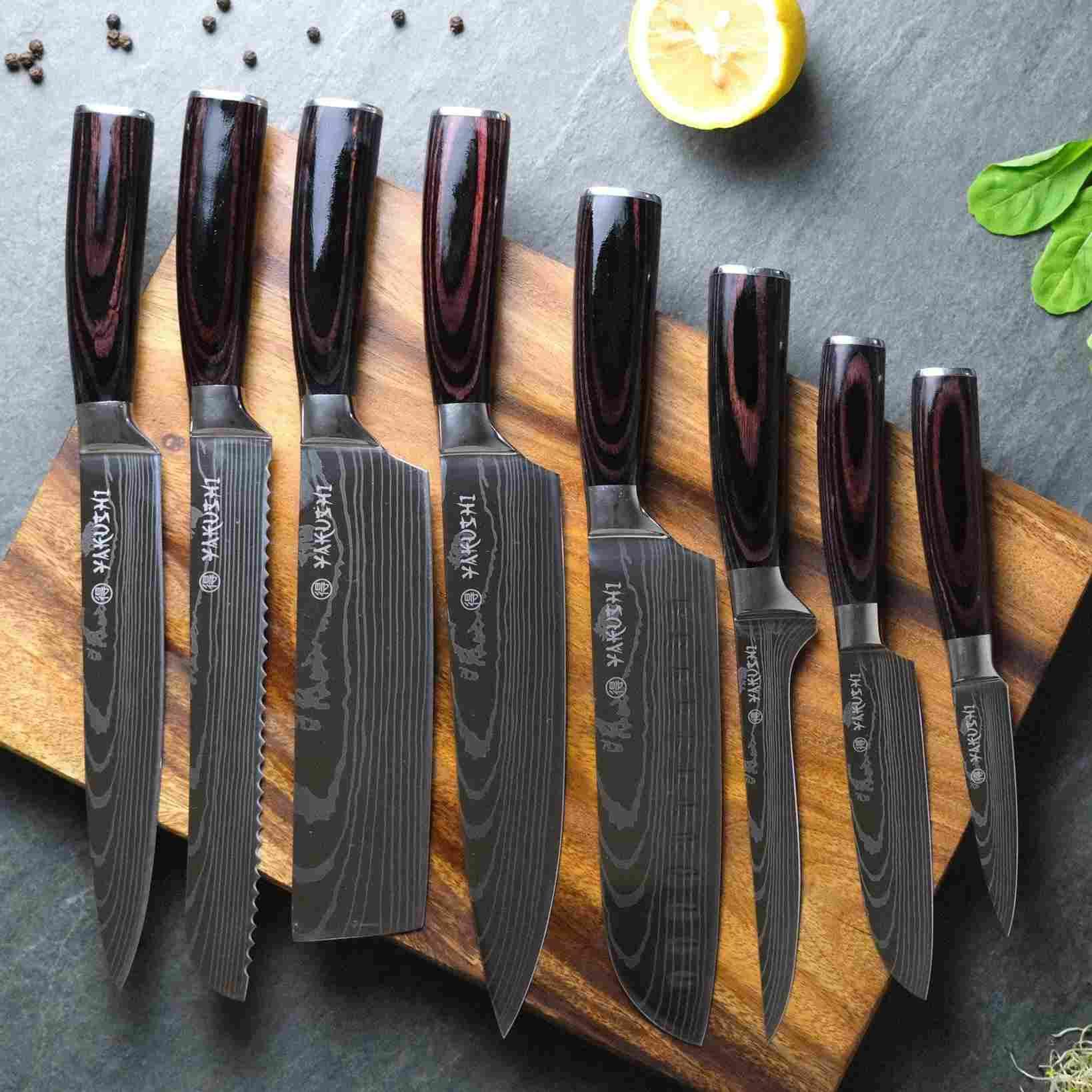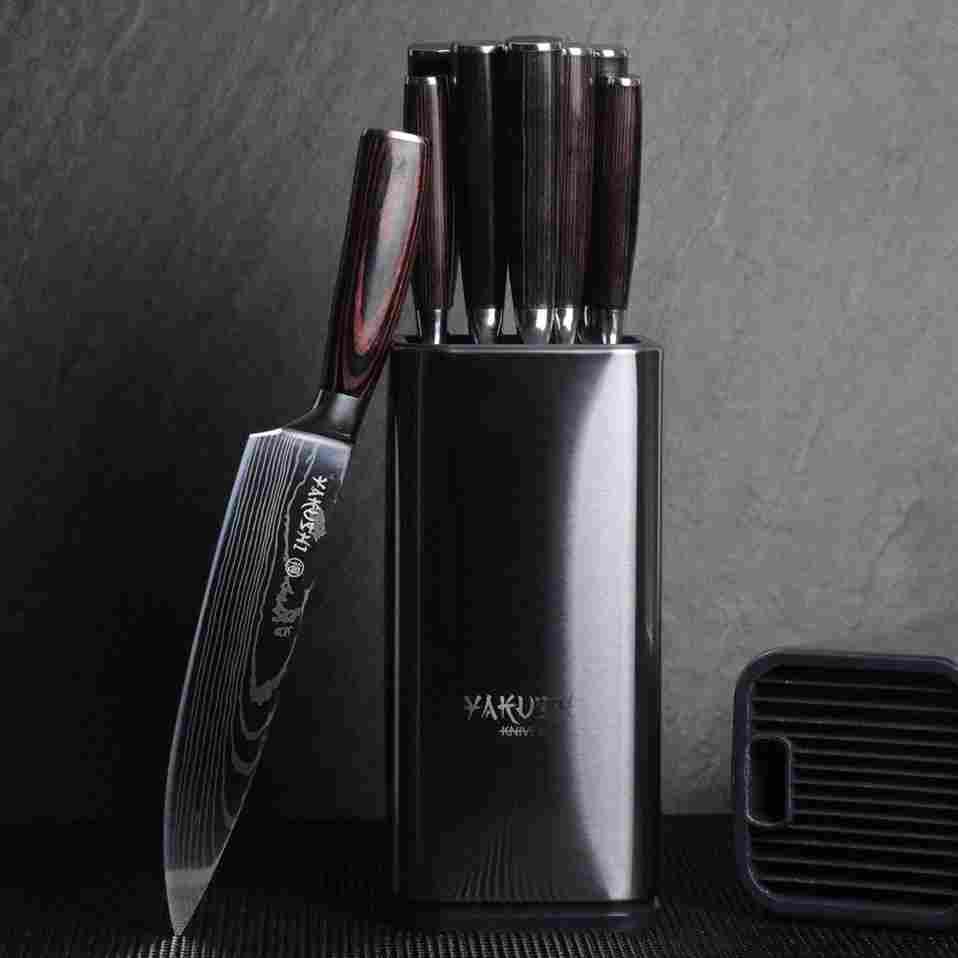Filters
8 products
Damascus Kitchen Knives — Timeless Craftsmanship Meets Modern Culinary Performance
Welcome to our premium Damascus kitchen knives collection — where artisan steelwork meets professional kitchen performance. Each knife in this collection harnesses the legendary strength and unique beauty of Damascus steel, delivering precise cuts, exceptional edge retention, and elegant style for both home cooks and culinary professionals.
What Makes Damascus Kitchen Knives Special
🧬 Heritage & Modern Forging Combined
-
The “Damascus” name traces back to the famed historic steel renowned for swords and exceptional blades. Modern Damascus kitchen knives use a pattern-welded structure: multiple layers of steel are forge-welded and folded to produce the distinctive marbled or “watered” pattern — so each blade is unique.
-
This layered construction merges the advantages of hard, high-carbon steel (for a razor-sharp edge) with softer or corrosion-resistant outer layers (for toughness and resilience) — giving you a blade that balances sharpness, durability, and resistance to wear.
🔪 Sharper Edge & Long-Lasting Performance
-
Damascus kitchen knives are prized for their ability to achieve and maintain a keen edge — ideal for slicing, dicing, chopping, filleting, and fine prep work.
-
Their edge retention and resilience under regular use means less frequent sharpening compared with many standard kitchen knives, making them a worthwhile investment for frequent cooks or professional kitchens.
🍽️ Versatility — One Knife for Many Kitchen Tasks
Damascus knives shine in a wide variety of culinary applications:
-
Precision slicing of vegetables, herbs, and delicate produce
-
Filleting fish or poultry, trimming meats
-
Chopping, dicing, and prep work for everyday cooking
-
Carving and intricate kitchen tasks — thanks to sharpness, balance, and control
🎨 Unique Aesthetic & Craftsmanship Value
Each Damascus blade is an individual work of craftsmanship. The layered steel pattern gives every knife a distinctive, elegant look — making these knives not only high-performing tools but also beautiful kitchen pieces with artisan appeal.
Care & Maintenance — Keep Your Damascus Knives Performing
-
Hand-wash only — avoid dishwashers. Use mild soap, warm water, and a soft cloth; dry thoroughly immediately after cleaning to prevent moisture exposure.
-
Sharpen with quality stones or sharpening tools — maintaining a proper edge preserves cutting performance and extends the knife’s lifespan. Regular honing or sharpening helps retain the blade’s precision.
-
Store properly — use a knife block, magnetic strip, or blade guard instead of tossing knives loosely into drawers. This helps protect the edge and preserve both performance and aesthetics.
Choosing the Right Damascus Kitchen Knife for You
| Use Case / Need | Recommended Knife Type / Consideration |
|---|---|
| General purpose cooking (meat, veggies, daily meals) | Medium-sized chef / gyuto-style Damascus knife — balanced for everyday versatility |
| Frequent slicing, filleting, or delicate cuts | Slim-profile blade with fine edge — ideal for fish, produce, fine work |
| Heavy-duty chopping or dense produce/meat | Durable Damascus knife with balanced weight and robust steel layers |
| Gift, display, or aesthetic kitchen centerpiece | Damascus knife with distinctive pattern + premium handle — both functional and ornamental |
Each knife in the collection is chosen to match different cooking styles, kitchen needs, and user preferences — giving flexibility and choice to shoppers.
Why Our Damascus Kitchen Knife Collection Is Worth It
-
Authentic Damascus craftsmanship: real pattern-welded steel — not merely etched repeats — with layering that balances sharpness and toughness.
-
High-performance blades: sharp, durable, versatile — built for everyday cooking, gourmet meals, and professional use.
-
Unique aesthetic appeal: each knife is a functional work of art — distinctive, timeless, and built to stand out in any kitchen.
-
Comprehensive buyer support: clear care instructions, sharpening guidance, and transparent information to help buyers make informed choices.
-
Optimized for long-term value: quality materials and construction ensure that with proper care, knives remain sharp, functional, and beautiful for years.
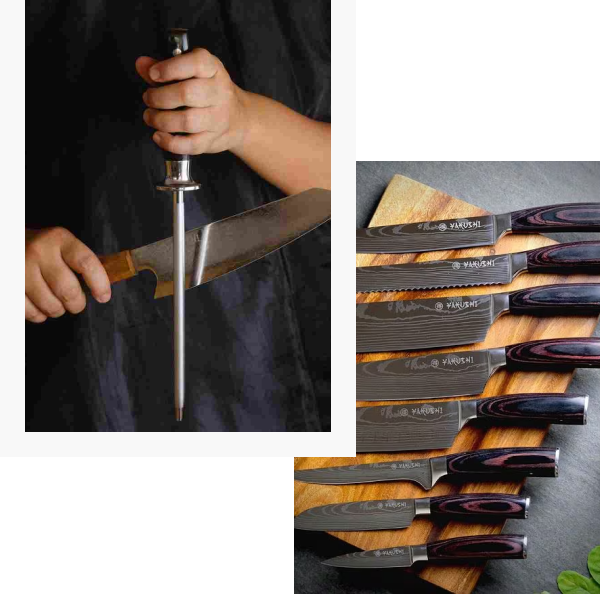
About the Knives
We are passionate craftsmen, dedicated to creating exceptional Japanese knives that embody beauty, function, and tradition. We use only the finest materials and employ conventional forging techniques to ensure that our knives are not only razor-sharp and durable but also a work of art.
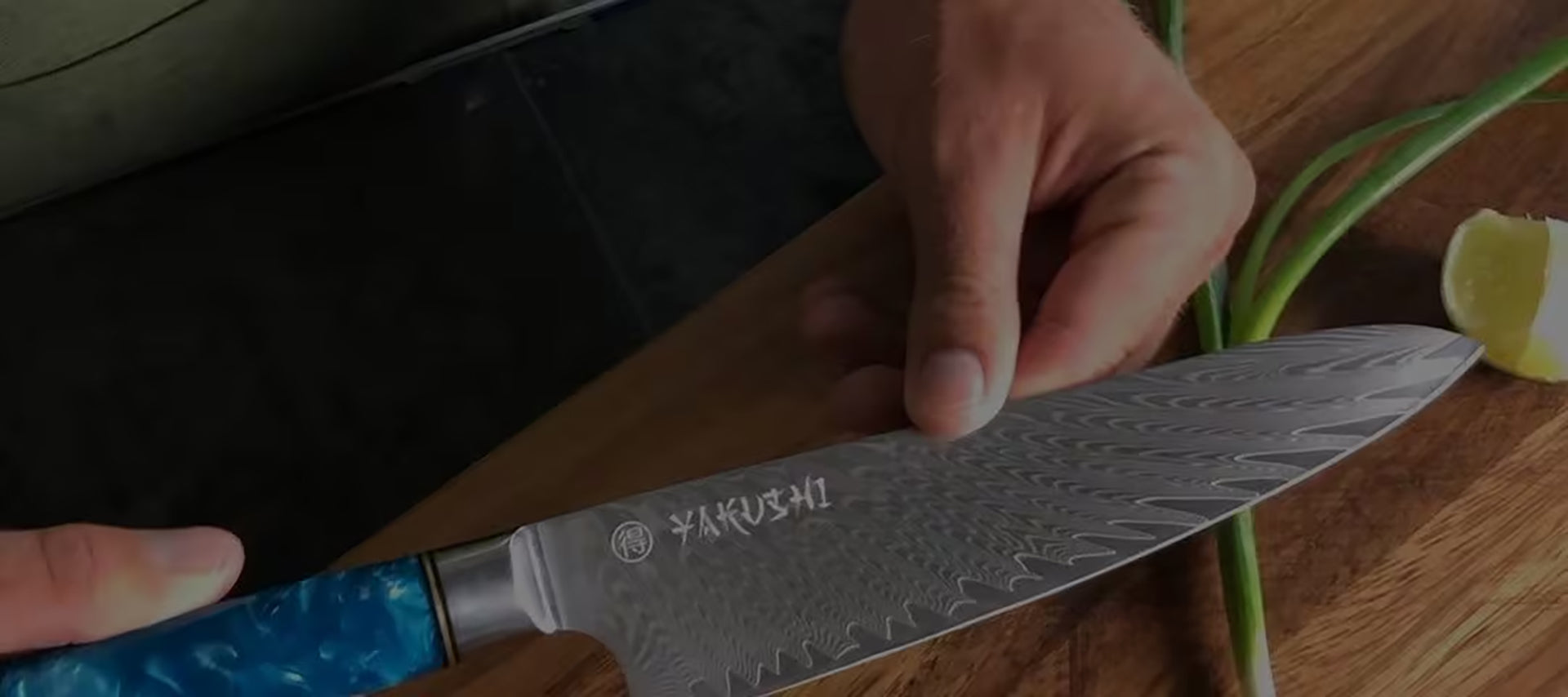
WATCH VIDEO
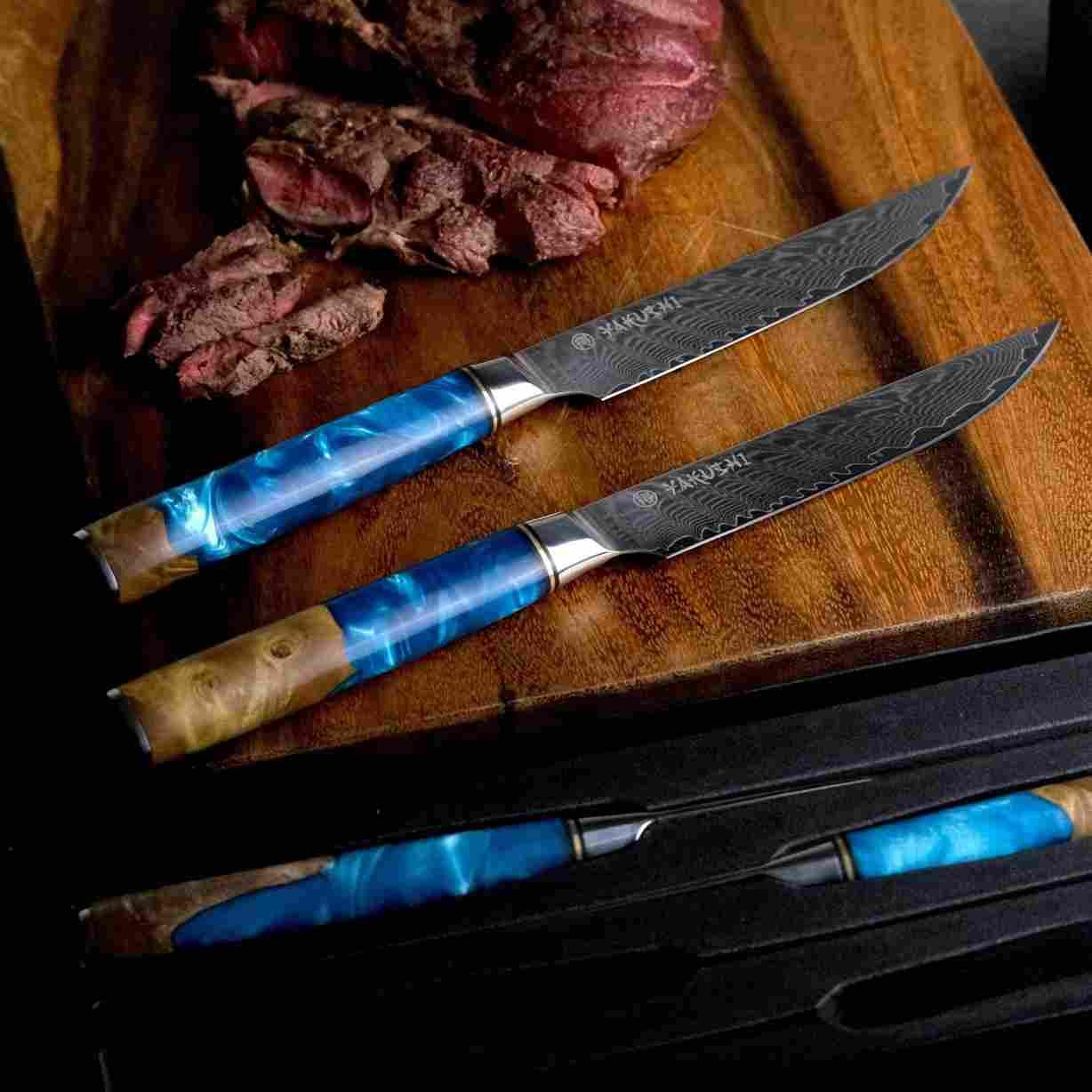
Yakushi™ Damascus Steel Chef Knife
A Classy Handcrafted Set, Not only for special occasions.
This Steak Knife Set includes four beautifully crafted knives, making it perfect for families or small dinner parties. The knives come in a stylish box, making it an excellent gift for any steak lover in your life.
I really like the traditional look. They have perfect balance and grip. Incredibly sharp as well!
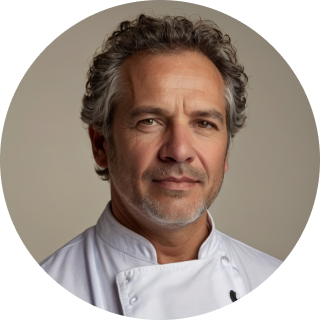
The Knives are perfect and sharp! I love chopping vegetables with my family now!

I ordered the 5 Piece Set and it exceeds my expectations!


